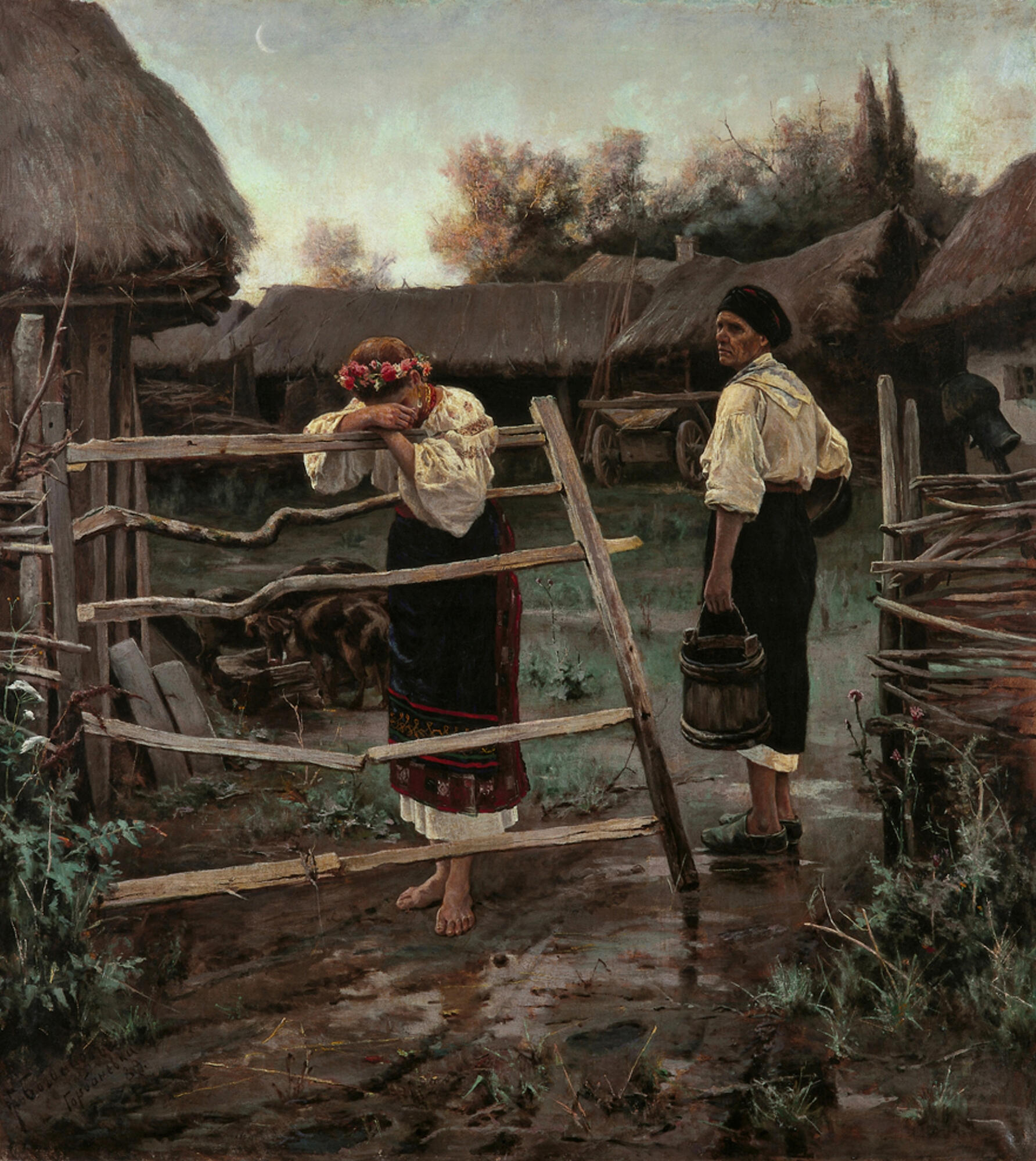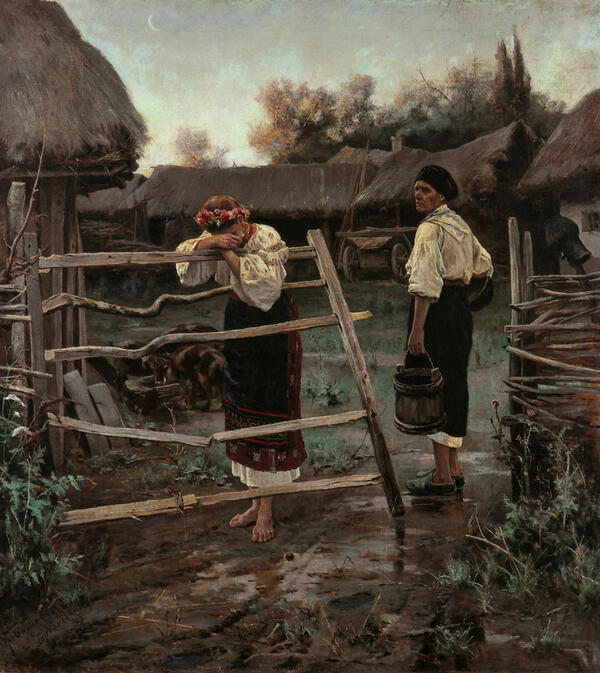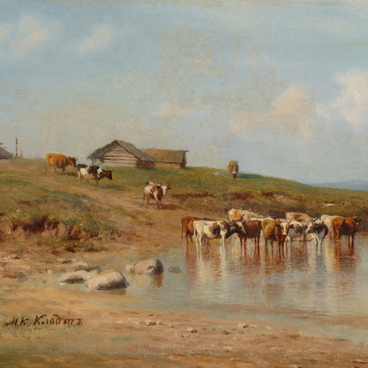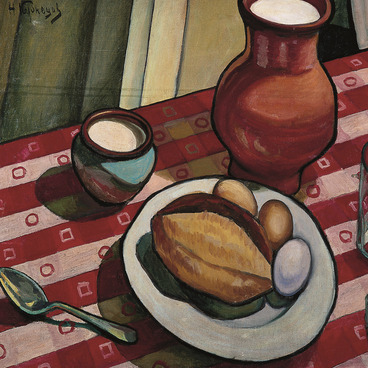Nikolay Bogdanov was born in 1850 in St. Petersburg. Bogdanov created his first painting, the interior of a church, at the age of 15. In 1870, he entered the Academy of Arts. In 1874, academicians awarded him a silver medal (2nd class) for landscape studies, and in 3 years, he got a silver medal (1st class).
In 1878, Nikolay Bogdanov went on a trip across Russia. While travelling, he collected images and scenes for his future paintings. His finished paintings were displayed at the exhibitions of the Association of the Wanderers, and at academic exhibitions.
In 1882, Bogdanov took part in the All-Russian Exhibition in Moscow with the paintings ‘The Guardian of the Railways’, ‘After the War’, ‘From the Harbor Life of St. Petersburg’. In the same year — 1882 — he submitted his work to a new competition of the Academy of Arts because then it was the first time the Academy evaluated works in the section of genre painting. For the painting ‘Family Scene in the Garden’ the artist was awarded a pensioner allowance for one year so that he could travel abroad — to Germany, France and Italy — and get acquainted with the works of famous genre painters. The sketches and drafts that Nikolay Bogdanov brought back from the trip were the foundation of his genre paintings. Academics praised them so highly that they extended the pensioners’ allowance for another two years.
Bogdanov’s works today are exhibited in the State Russian Museum, the State Tretyakov Gallery, the Nizhny Novgorod State Art Museum, the Saratov Art Museum and private collections.
The artist created the painting ‘Too Late’ in 1889. Against the background of barn buildings, the painter depicted a barefoot girl, covering her face with her hands, and an elderly woman — a mother or grandmother — who stands a little further away and either looks at her with sadness or disapproval. On the girl’s head, there is a wreath of flowers. A crescent moon is melting in the sky — we can assume that the action takes place early in the morning. The artist did not indicate where the she was and to where she was late. Art critics suggest that the conflict in the scene is that the girl wasn’t home all night and returned only in the morning.
In 1878, Nikolay Bogdanov went on a trip across Russia. While travelling, he collected images and scenes for his future paintings. His finished paintings were displayed at the exhibitions of the Association of the Wanderers, and at academic exhibitions.
In 1882, Bogdanov took part in the All-Russian Exhibition in Moscow with the paintings ‘The Guardian of the Railways’, ‘After the War’, ‘From the Harbor Life of St. Petersburg’. In the same year — 1882 — he submitted his work to a new competition of the Academy of Arts because then it was the first time the Academy evaluated works in the section of genre painting. For the painting ‘Family Scene in the Garden’ the artist was awarded a pensioner allowance for one year so that he could travel abroad — to Germany, France and Italy — and get acquainted with the works of famous genre painters. The sketches and drafts that Nikolay Bogdanov brought back from the trip were the foundation of his genre paintings. Academics praised them so highly that they extended the pensioners’ allowance for another two years.
Bogdanov’s works today are exhibited in the State Russian Museum, the State Tretyakov Gallery, the Nizhny Novgorod State Art Museum, the Saratov Art Museum and private collections.
The artist created the painting ‘Too Late’ in 1889. Against the background of barn buildings, the painter depicted a barefoot girl, covering her face with her hands, and an elderly woman — a mother or grandmother — who stands a little further away and either looks at her with sadness or disapproval. On the girl’s head, there is a wreath of flowers. A crescent moon is melting in the sky — we can assume that the action takes place early in the morning. The artist did not indicate where the she was and to where she was late. Art critics suggest that the conflict in the scene is that the girl wasn’t home all night and returned only in the morning.



